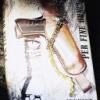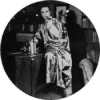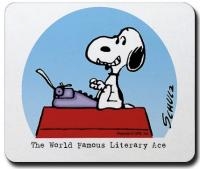Posted 28 December 2008 - 05:17 PM
COLONEL SUN is both a minor work in the Bond canon and a minor work in Amis' canon, so it hasn't received that much attention. One element that hasn't really been considered is the development of the project itself, by which I mean its rather strange chronology.
March 1963: Kingsley Amis announces that he wants to break free of documentary realism, and begins considering genre fiction.
October 29, 1963: Dudley Barker in the London office of literary agency Curtis Brown writes to Emilie Jacobson in the New York office and mentions that Amis 'intends to write a book in a year or two on the Spy novel in general. As a preliminary he wants to write a major article on the James Bond novels.' This started out as a 5,000-6,000 word on-spec article, with the New Yorker in mind, but soon became book-length, replacing the project on the spy novel in general.
May 1964: Amis submits THE JAMES BOND DOSSIER to Jonathan Cape. Shortly after, he starts work on a quickie companion piece, THE BOOK OF BOND.
August 12, 1964: Death of Ian Fleming.
October 5, 1964: Amis writes to Tom Maschler at Cape regarding THE MAN WITH THE GOLDEN GUN, enclosing a list of errors he has spotted and comments regarding the text. (Intriguingly, he wrote: 'There are no doubt all sorts of reasons why we can't have the book in its original version, the most telling of which is that it probably doesn't exist any more, if it ever did. I could re-jig it for you, but there are all sorts of reasons against that too.' So far from Amis rewriting this novel, as has been suggested by some, he in fact declined to do that. However, it would seem that it may have already done by others. Another topic, though.)
April 1, 1965: THE MAN WITH THE GOLDEN GUN by Ian Fleming published by Cape.
May 27 1965: THE JAMES BOND DOSSIER by Kingsley Amis published by Cape.
June 6, 1965: Sunday Times journalist John Pearson, working on a biography of Ian Fleming, writes to South African thriller-writer Geoffrey Jenkins asking him for his recollections of his old friend Fleming.
June 10, 1965: THE BOOK OF BOND, OR EVERY MAN HIS OWN 007 by Kingsley Amis published by Cape.
At some point shortly after this, Maschler apparently suggests that Amis write a Bond novel.
August 12, 1965: Amis writes to Edmund (Mike) and Mary Keeley, saying he and his wife 'have to come to Greece for roughly the month of September. I've got a bit of a novel to write which must be set thereabouts.'
September 2, 1965: Amis and his wife travel to Greece, where Amis starts researching his novel.
September 24, 1965: Geoffrey Jenkins replies to John Pearson with an eight-page letter about Ian Fleming. In it, he mentions that he once wrote an outline for a Bond novel set in South Africa that Fleming approved of and intended to write, and asks if it is in Fleming's remaining papers.
October 1, 1965: Pearson replies to Jenkins' 'splendid letter', saying he has found his Bond synopsis. 'Perhaps you should write it now?' he wonders.
November 2, 1965: Jenkins and Pearson meet in London. Sometime this month, Jenkins visits Glidrose's offices in Bucklersbury House, where he meets with Charles Tyrrell and Harry Saltzman to discuss writing a 'continuation' Bond novel based on his earlier synopsis.
March 15, 1966: Peter Fleming writes to Ann Fleming proposing to 'tell Kingsley Amis to go ahead' in writing a Bond novel.
May 12, 1966: Glidrose cable Jenkins to tell him they will shortly agree to grant him permission to write a Bond novel.
August 24, 1966: Jenkins receives a contract from Glidrose. He would be paid £5,000 on signing the contract and £5,000 on publication of the novel (the same terms as Amis), and would also be entitled to half of Glidrose's 2.5-percent share of global profits of any film or serial adaptation (excepting merchandising). As with Amis, the contract has a 'get-out clause': if Glidrose don't like the submission, they are under no obligation to publish it. Jenkins is given six months to submit a manuscript.
At some point within the next six months, Jenkins submits his Bond novel, PER FINE OUNCE, to Glidrose. They reject it.
September 19, 1966: HUNTER-KILLER by Geoffrey Jenkins published in the UK by Collins. The book opens with a tribute to Ian Fleming and James Bond, wherein scuba-suited British secret agent Commander Geoffrey Peace is buried at sea, only for it to be revealed in the next scene that he is alive:
'I blinked in disbelief. Peace stood on the terrace in the same black rubber suit in which I had seen him in his coffin. A long diving-knife was in his hand. I tried to speak, but the words would not come…
Mam'zelle Adele was still on my arm. Peace's greeting to her was level, comradely.
"Hello, Mam'zelle Adele."
She detached herself. "Good evening, Commander. Was it a good trip?"
"Get me a drink and I’ll tell you," he replied...'
The scene is studded with references to the short story THE HILDEBRAND RARITY and other Fleming works. The Daily Telegraph review ('Tremendous sea-chase in nuclear submarine... very effective') is used by Collins in publicity.
May 21, 1967: In a letter to Philip Larkin, Amis mentions that he has finished his 'Bond novel'.
June 12, 1967: The film YOU ONLY LIVE TWICE starring Sean Connery premieres in London; the film opens with Bond being buried at sea, only for the next scene to reveal him alive.
March 28, 1968: COLONEL SUN by Robert Markham (Kingsley Amis) published by Cape.
March 31, 1968: The Observer publishes Amis' article 'A New James Bond', in which he outlines his reasons for accepting the job and his thinking with the novel:
'Where? Not Jamaica - Bond had been there too often. Not the States - too expensive. Not France - too many Frenchmen about. Greece? Yes - Bond never been, I never been, sounds good, islands just right. Also, Eastern Mediterranean a sphere of Russian expansion, British interests there too. (This was in September 1965.) But Russia versus Britain too old-hat. Then Red China versus Britain and also verus Russia. So Bond could team up with Russian agent. Female. Tough, like all Bond's girls. And Red China as villain is both new to Bond and obvious in the right kind of way. And Chinese master-villain vould be fun.'
What is unusual about all this? Well, firstly, that Glidrose appear to have given Amis and Jenkins contracts at almost the same time - possibly without the knowledge of each other. It may be that they wanted to cover their bases, or stop Jenkins from publishing without their permission. There also seem to be several agendas: as well as Amis' and Jenkins', Peter Fleming's, Ann Fleming's and Tom Maschler's; perhaps also Harry Saltzman's.
Amis' involvement with Bond seems to have stemmed from a desire to diversify his fiction, and in 'A New James Bond' he stated that he had 'always vaguely wanted, and for some time had been a little more purposefully intending, to write a thriller. When the Bond thing came up it seemed like a gift from the gods.' But when, precisely, the Bond thing came up, is also a little vague. Could Amis really have been naive enough to start writing a Bond novel at least six months before he received a contract to do so (at least six months, because unless Peter Fleming was lying to Ann Fleming, it would have taken a while to draw up contracts; it took Glidrose three months to do it with Jenkins, and even that doesn't seem to have been the final version)?
What would Amis have done if he had not received a contract - or the novel had been rejected? Jenkins' contract stipulated that in such an event he could publish the novel himself as long as it did not contain any Fleming characters. Amis would probably have done the same. But Amis may have already been considering doing precisely that. His James Bond was, after all, rather anonymous. If he had renamed him 'John Brown' and changed a few other details, would COLONEL SUN be recognisable as a Bond novel? Perhaps not. In many ways, it is more similar to a Peter O'Donnell Modesty Blaise adventure (especially the first novel, published in 1965, which takes places on the Turkish island of Kalithos). So perhaps in September 1965 Amis was researching and beginning to write an adventure thriller in which Bond would or would not feature, depending on the development of the contracts.
There are a lot of missing elements here. Perhaps there were other novelists in the running for the job, too. If it were just Amis versus Jenkins, though, one can see why Glidrose went for Amis, whose reputation was considerably greater. But one can also read any of Jenkins' Sixties' novels and wonder what might have happened. And had Jenkins 'won' this particular battle, I wonder if anyone would remember Amis' 'John Brown' thriller very fondly.









